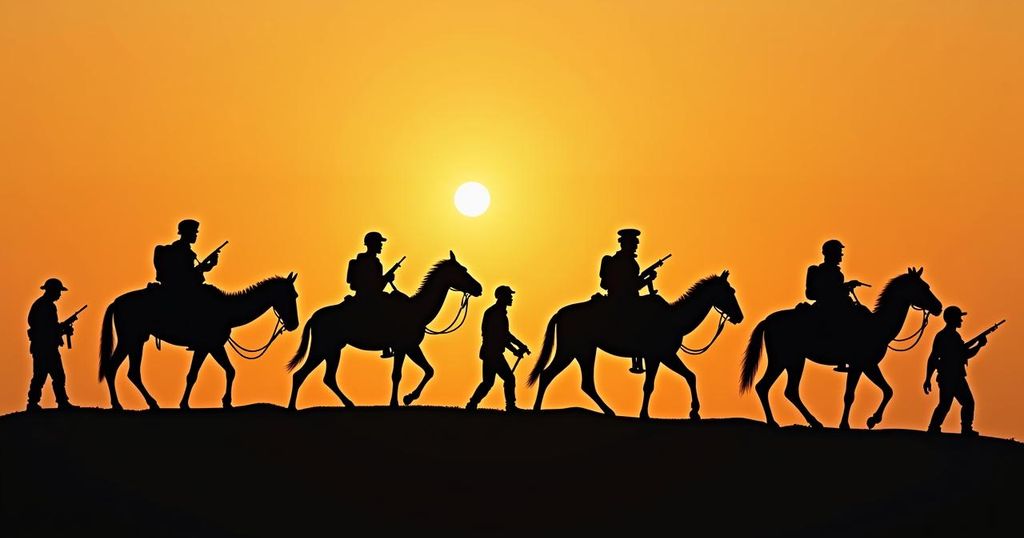Egyptian President El-Sisi has asserted that Egypt’s military aid to Somalia is intended to address the country’s long-standing instability rather than as a response to Ethiopia. The aid, recently highlighted by a substantial military shipment and reinforced by existing defense pacts, reflects a commitment to strengthening ties with Somalia. Somalia’s Defense Minister expressed gratitude for this support, underscoring the strategic partnership aimed at enhancing national security and stability.
Egyptian President Abdel Fattah El-Sisi has articulated that the nation’s military aid to Somalia is grounded in a commitment to assist in the resolution of Somalia’s longstanding instability rather than serving as a geopolitical maneuver against Ethiopia. During a police academy graduation ceremony in Cairo, El-Sisi emphasized, “We do not support Somalia because of Ethiopia. We support them because they have been in a state of instability for 30 years.” This declaration coincides with a heightened focus on Egypt’s significant involvement in enhancing Somalia’s stability, evidenced by the recent dispatch of a ship carrying considerable military aid from the Egyptian Armed Forces. Somalia’s Minister of Defense, Abdulkadir Mohamed Nur, expressed profound appreciation for the support received from Egypt, stating, “We know our interests and we will choose between our allies and our enemies. Thank you, Egypt.” The recent shipment stands out as one of the most substantial arms transfers Somalia has secured, reflecting the strengthening defense relations between Cairo and Mogadishu. Furthermore, this initiative marks the second instance of military assistance from Egypt to Somalia, following an August defense agreement and military cooperation protocol established during Somali President Hassan Sheikh Mohamud’s visit to Cairo. Additionally, at the recent United Nations General Assembly, Egypt’s Foreign Minister Badr Abdelatty condemned actions that jeopardize Somalia’s sovereignty, reaffirming Egypt’s commitment to promoting regional stability. El-Sisi’s statements and actions reinforce Egypt’s dedication to fostering a stable environment in Somalia, suggesting a hopeful perspective for the nation’s future.
The context of this article centers around the evolving relationship between Egypt and Somalia amidst regional challenges. Egypt has a historical interest in the stability of Somalia due, in part, to concerns regarding the Horn of Africa’s geopolitical climate, particularly the activities of Ethiopia, which has been a source of regional tension. Somalia has faced protracted instability for over three decades, characterized by civil conflict and governance challenges, prompting international assistance aimed at restoring order and enhancing the nation’s defense capabilities. Recent military aid from Egypt is a part of ongoing efforts to bolster Somalia’s security forces while navigating the complex dynamics of regional relations.
In summary, President El-Sisi’s remarks clearly delineate Egypt’s military aid to Somalia as a response to humanitarian and stability concerns rather than any regional rivalries, especially with Ethiopia. The delivery of military assistance signifies a deepening partnership between Egypt and Somalia, aimed at enhancing security and fostering an environment conducive to stability in Somalia, which has been mired in conflict for decades. The ongoing dialogue and agreements between the two nations portray a commitment to cooperation and mutual support in the face of regional complexities.
Original Source: www.garoweonline.com






